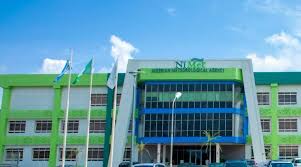Weather predictions guide planting, irrigation, and harvesting. With most farmers dependent on rain-fed agriculture, reliable forecasts can prevent losses from droughts and floods. Weather predictions and sustainable farming are, therefore, crucial for Nigeria’s food security and economic growth.
Today, the agriculture sector is facing huge challenges occasioned by extreme weather, shrinking farmlands, rising insecurity issues, and inconsistent public policies, among others. Agriculture remains as a key component of the Nigerian economy with huge potential for employment generation for about 200 million citizens.
The country has over 70.8 million hectares of agricultural land with major crops cultivated on them. However, with the unsteady weather, the attainment of food security is increasingly being threatened by climate change and thus, gradually becoming a mirage. For instance, climate conditions vary significantly across Nigeria.
The North gets 300mm to 1,200mm of rainfall annually, while the South receives 1,500mm to 4,000mm. Sunlight exposure also differs, with the North averaging six to nine hours daily, compared to the South’s four to six hours.
The Nigerian Meteorological Agency (NiMet), which provides seasonal predictions, has been working to strengthen its weather forecasting capabilities, including providing reliable planting date forecasts. In recent years, Nigeria has made significant strides in improving its weather forecasting capabilities. For instance, NiMET has warned that average temperatures in the country had risen by 1.5°C in the last 60 years, causing severe droughts and flooding.

The International Food Policy Research Institute (IFPRI) has cautioned that the impact of 2022 floods, which displaced about 1.4 million people and submerged over 569,000 hectares of farmland, could drastically reduce crop yields by 30% by 2050. The National Bureau of Statistics further revealed that between 2022 and 2024, the Middle Belt zone, which is very active in farming, had witnessed a drop of over 70% in agricultural production. Despite these efforts, many farmers in Nigeria still lack access to reliable weather forecasts.
This is particularly true for smallholder farmers, who often rely on traditional methods of weather forecasting, such as observing changes in temperature, humidity, and wind patterns. With less than 5% of farmlands irrigated, Nigeria remains dangerously dependent on erratic rainfall, and any disruption poses severe risks, not only to food production, but human livelihoods. It is for these reasons that accurate weather predictions and sustainable farming should be pursed and given high priority than what is presently obtainable.
By improving access to reliable weather predictions, Nigerian farmers can better adapt to climate-related shocks, reduce crop losses, and improve their overall productivity. We need to also practice better mechanised farming, of which Nigeria is ranked low, when juxtaposed with the approved benchmark of the National Agricultural Technology and Innovation Policy, 2022-2027.
FarmingFarmersFarms is of the opinion that we need to get it right by focusing more on climate-smart agriculture and accurate weather predictions through generous investment in advanced meteorological technology; improve rural outreach; and provision of simplified, localised weather reports; and strengthening collaboration between NiMet, agricultural agencies, and farmers. Agricultural extension must be revitalised. Encouraging and equipping students to study agricultural extension and integrating them into key agencies, can enhance farming resilience in the face of climate change and modernisation.

